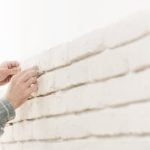Are you a homeowner looking to make improvements to your house but lacking the necessary funds? Look no further than government grants for home improvement. These grants are a valuable resource that can provide financial assistance and support for various home improvement projects. Whether you’re looking to renovate your kitchen, add an extension, or make your home more energy-efficient, government grants can help turn your dreams into reality.
In this article, we will explore the world of government grants for home improvement and guide you on how to find them. We’ll start by discussing the different types of grants available and explaining how they can benefit homeowners like yourself. Understanding the variety of options available is crucial when embarking on a home improvement project, as it allows you to identify the grant that aligns best with your needs.
Once you have a grasp of the different types of grants, we’ll delve into researching and identifying government agencies that offer these grants. Knowing where to look is key in ensuring that you have access to the resources necessary for funding your projects. Furthermore, we’ll provide guidance on determining eligibility criteria for these grants so that you have a clear idea of whether or not you qualify.
By following our step-by-step guide on applying for government grants for home improvement, you’ll be equipped with all the knowledge needed to navigate the application process successfully. Additionally, we’ll also explore alternative sources of funding for those who may not meet the criteria or have difficulty securing a grant.
Stay tuned as we walk you through tips and tricks that can increase your chances of receiving a government grant and share inspiring real-life success stories from individuals who have already benefited from these programs. Finally, we’ll address some frequently asked questions about government grants for home improvement and conclude by highlighting the potential benefits and impact these grants can have on enhancing your living space.
Understanding the types of government grants available for home improvement
Government grants for home improvement come in various forms, each catering to different needs and circumstances. Understanding the types of grants available is essential in order to choose the one that best suits your specific project.
One common type of government grant for home improvement is the Weatherization Assistance Program (WAP). This program aims to improve energy efficiency and reduce utility costs for low-income households. Eligible homeowners can receive funding to implement measures such as insulation, air sealing, and HVAC upgrades. The assistance provided through WAP helps households save money on energy bills while also reducing their carbon footprint.
Another type of government grant is the Single-Family Housing Repair Loans & Grants program offered by the United States Department of Agriculture (USDA). This program assists low-income homeowners in rural areas with necessary home repairs or improvements, including accessibility modifications for individuals with disabilities. The funding can be used for a wide range of purposes such as roof repair, plumbing upgrades, or installation of safety features.
In addition to these programs, there are also grants specifically designed for specific groups or circumstances. For example, there are grants available for veterans or service members through organizations like the Department of Veterans Affairs (VA) or nonprofit foundations. There are also grants targeted towards individuals with disabilities or seniors who require modifications to make their homes safer and more accessible.
Understanding the different types of government grants available for home improvement allows homeowners to identify which programs they may be eligible for and tailor their applications accordingly. Whether it’s improving energy efficiency or making necessary repairs, government grants can provide valuable financial support to enhance your home.
| Types of Government Grants | Eligibility Criteria |
|---|---|
| Weaterization Assistance Program (WAP) | – Low-income households
|
| Single-Family Housing Repair Loans & amp; Grants program | – Low-income homeowners in rural areas
|
| Veterans or service members grants | – Veterans or service members
|
| Grants for individuals with disabilities or seniors | – Individuals with disabilities or seniors
|
Researching and identifying government agencies offering home improvement grants
Start with the Department of Housing and Urban Development (HUD)
The Department of Housing and Urban Development (HUD) is a federal agency that provides a range of grant programs to help low-income individuals and families with home repairs and improvements. HUD offers several grant programs, including the Community Development Block Grant (CDBG) program, the HOME Investment Partnerships Program, and the Weatherization Assistance Program. These programs are designed to assist homeowners in making necessary repairs, improvements, energy efficiency upgrades, and accessibility modifications.
Check with your state housing agency
In addition to federal agencies like HUD, many states have their own housing agencies that offer home improvement grants. These state programs may focus on different aspects of home improvement such as weatherization or accessibility modifications. Research your state’s housing agency website or contact them directly to find out what grants they offer and how you can apply.
Explore local government resources
Local government entities such as cities or counties may also offer home improvement grants to residents. These grants are often targeted towards specific neighborhoods or communities that are in need of revitalization or rehabilitation efforts. Check with your local city or county government offices to see if they have any grant programs available for homeowners.
By conducting thorough research and identifying the government agencies that offer home improvement grants, you can start narrowing down your options and determining which grants you are eligible for. This will ultimately lead you closer to securing the funding needed for your home improvement project.
How to determine eligibility for government grants for home improvement
Understanding the eligibility requirements
Before applying for government grants for home improvement, it is important to understand the eligibility requirements set by the granting agency. Each grant program may have specific criteria that applicants must meet in order to be considered eligible. These requirements can vary depending on factors such as income level, location, and the nature of the home improvement project.
Evaluating income qualifications
One common eligibility requirement for government grants for home improvement is an income qualification. This means that applicants must meet a certain income threshold in order to be considered eligible for the grant. The purpose of this requirement is to ensure that government funds are targeted towards those who truly need financial assistance for their home improvement projects.
To determine your eligibility based on income, gather necessary financial documents such as tax returns and pay stubs. Calculate your household’s total annual income and compare it with the income limits provided by the granting agency. If your household’s income falls within the specified range, you may be eligible to apply for the grant.
Assessing project-specific qualifications
Apart from income qualifications, some government grants for home improvement have specific project requirements that applicants must meet. These requirements may involve factors such as the type of home improvement project, safety standards, or energy efficiency measures. It is essential to carefully review and understand these qualifications before proceeding with your application.
For instance, if you are applying for a grant specifically aimed at energy-efficient upgrades, you will need to demonstrate how your proposed project aligns with energy-saving goals. This could involve providing details about the materials you plan to use or providing estimates on potential energy savings after completion. By thoroughly understanding and meeting these project-specific qualifications, you increase your chances of being deemed eligible for a government grant for home improvement.
By thoroughly evaluating both general eligibility requirements such as income qualifications and specific project-related qualifications, you can determine whether or not you meet the criteria for government grants for home improvement. It is crucial to have a clear understanding of eligibility requirements before applying, as this will save time and effort in the application process. Additionally, by ensuring that you meet all eligibility requirements, you increase your chances of receiving funding for your home improvement project.
Step-by-step guide on how to apply for government grants for home improvement
Applying for government grants for home improvement can be a complex process, but with the right guidance, it can also be a rewarding experience. Follow this step-by-step guide to increase your chances of securing a government grant for your home improvement project.
- Research and identify relevant government agencies: Start by finding out which government agencies offer grants for home improvement projects. These may include federal, state, or local agencies. Each agency may have different eligibility requirements and application procedures, so it’s essential to gather information on all potential sources of funding.
- Review eligibility criteria: Once you have identified the relevant government agencies, carefully review their eligibility criteria to determine if you meet the requirements. Eligibility criteria may vary based on factors such as income level, location, property value, and specific renovation needs. Make sure to understand all the requirements before proceeding with the application process.
- Gather necessary documents and information: Before starting your application, gather all the necessary documents and information that will be required during the process. This may include proof of income, property documents, contractor estimates or bids, detailed project plans or blueprints, and any other supporting documentation specified by the grant agency.
- Fill out application forms accurately: Complete the application forms accurately and thoroughly to ensure that all required information is provided. Be prepared to give detailed explanations about your home improvement project, including its purpose, expected outcomes, timeline, and budget. It is crucial to demonstrate how your project aligns with the goals of the grant program.
- Submit your application within deadlines: Pay close attention to deadlines specified by each grant program and make sure to submit your application before they expire. Late or incomplete applications are often rejected without consideration.
- Follow up on your application: After submitting your application, keep track of its progress by following up with the grant agency at regular intervals. This will help you stay informed about any additional documentation required or updates on the status of your application.
Remember, the process of applying for government grants for home improvement can be highly competitive. Be patient and persistent, and do not get discouraged if you are not selected on your first attempt. Continue to explore alternative sources of funding and consider improving your application based on feedback received.
Now that you have a comprehensive understanding of the step-by-step process to apply for government grants for home improvement, it’s time to gather all necessary documents and start planning your compelling grant application. With patience and perseverance, you may soon receive the financial support needed to transform your home into the dream space you envision.
Exploring alternative sources of funding for home improvement projects
When seeking funding for home improvement projects, government grants are not the only option available. Exploring alternative sources of funding can expand your possibilities and increase your chances of securing the financial assistance you need. Here are some alternative sources to consider:
- Non-profit Organizations: Many non-profit organizations offer grants or low-interest loans for home improvements, particularly for low-income individuals or those with specific needs. These organizations may have specific criteria and requirements, so it’s important to research and identify which ones align with your project and circumstances.
- Community Development Block Grants (CDBG): CDBG programs provide annual funding to states, cities, and counties to address community development needs, including housing rehabilitation. Contact your local government office to inquire about CDBG programs in your area and determine if you qualify.
- Home Equity Loans or Lines of Credit: If you have equity in your home, you may be able to secure a loan or line of credit using that equity as collateral. This can provide you with funds to finance your home improvement project at potentially lower interest rates compared to other financing options.
- Personal Savings or Investments: Using personal savings or investments is another option worth considering if you have the necessary funds available. This eliminates the need for applying for grants or loans, as you can fund the project independently.
- Crowdfunding: Crowdfunding platforms like Kickstarter or GoFundMe allow individuals to raise funds online by sharing their project vision with friends, family, and even strangers who are interested in supporting their cause.
- Energy Efficiency Programs: Some utility companies offer energy efficiency programs that provide incentives, rebates, or financing options for homeowners who make energy-saving improvements in their homes. These programs not only help reduce energy costs but also contribute towards a more sustainable living environment.
By exploring these alternative funding sources in addition to government grants, you can increase your options and find financial assistance that best suits your needs. It’s important to thoroughly research each option, understand the specific requirements and eligibility criteria, and carefully weigh the pros and cons of each funding source before making a decision. Remember, proper planning and thorough consideration will increase your chances of finding the necessary funds to bring your home improvement project to life.
Tips and tricks for increasing your chances of receiving a government grant
One of the main challenges when applying for government grants for home improvement is the competition. With limited funding and a high number of applicants, it’s important to take every possible step to enhance your chances of receiving a grant. Here are some tips and tricks to increase your likelihood of securing a government grant:
- Research and understand the specific requirements: Before applying for any grant, thoroughly research and understand the eligibility criteria, application process, deadlines, and any additional requirements specified by the government agency offering the grant. This will ensure that you meet all the necessary qualifications and provide all the required documentation.
- Tailor your application: Each grant application should be tailored to fit the specific requirements of the government agency organizing it. Take time to read through the guidelines carefully and tailor your application accordingly. Highlight how your proposed home improvement project aligns with their goals or objectives.
- Submit a well-written proposal: Your proposal should be clear, concise, and well-organized. Clearly outline your project goals, timeline, budget estimates, and expected outcomes. Use persuasive language to demonstrate why your project deserves funding.
- Demonstrate community impact: Government agencies often prioritize projects that have a significant positive impact on the community or environment. Clearly articulate how your proposed home improvement project will benefit not only yourself but also others in your community or neighborhood.
- Seek professional assistance if necessary: If you find the grant application process overwhelming or unfamiliar territory, consider seeking professional assistance from consultants who specialize in writing grant proposals or nonprofit organizations that provide support in navigating such applications.
- Follow instructions meticulously: Pay attention to every detail provided by the funding agency concerning formatting requirements, supporting documents needed, submission process, etc. Failure to comply with these instructions can result in automatic disqualification.
By following these tips and tricks, you can significantly enhance your chances of receiving a government grant for home improvement projects. Remember that perseverance is key – even if you aren’t successful with one application, don’t be discouraged and continue seeking out other opportunities. With determination and careful preparation, you may soon find yourself receiving the funding you need for your home improvement endeavors.
Real-life success stories
One of the most compelling aspects of government grants for home improvement is the real-life success stories that have emerged from these programs. These stories serve as inspiration and proof that securing a government grant can truly make a difference in people’s lives. By highlighting some of these success stories, individuals may gain a better understanding of the potential benefits and impact that receiving a government grant for home improvement can bring.
One such success story is that of Jennifer Thompson. Facing financial constraints, Jennifer believed her dream of renovating her outdated kitchen would remain just that – a dream. However, through thorough research and determination, she discovered a government grant program specifically designed to assist low-income homeowners with home improvements.
Jennifer applied for the grant and was approved, receiving funds that covered the cost of new appliances, countertops, and cabinets for her kitchen. This grant not only improved the functionality and aesthetics of Jennifer’s home but also lifted a burden off her shoulders.
Another inspiring example is John Lewis, who was living in an old house with inadequate insulation during harsh winter months. Aware of the health risks associated with cold homes, especially among vulnerable populations, John sought assistance through government grants for home improvement. He found a grant program aimed at improving energy efficiency in homes and successfully secured funding to install insulation throughout his house. The increased comfort and reduced energy bills were significant improvements in John’s life.
These success stories demonstrate the transformative power of government grants for home improvement. They prove that securing a grant can provide much-needed resources to homeowners who may otherwise be unable to afford necessary renovations or repairs. By sharing these testimonies, more individuals may be encouraged to explore their options and pursue available governmental funding opportunities for their own home improvement projects.
Frequently asked questions about government grants for home improvement
When it comes to government grants for home improvement, many people have questions about the process, eligibility criteria, and potential benefits. In this section, we will address some of the most frequently asked questions to provide you with a clearer understanding.
- What is a government grant for home improvement?
- Who is eligible for government grants for home improvement?
- How can I find available government grants for home improvement?
- What types of projects do government grants cover?
- How do I apply for government grants for home improvement?
A government grant for home improvement is financial assistance provided by federal, state, or local government agencies to homeowners in need of funds to make necessary improvements or repairs to their homes. These grants are typically awarded based on specific criteria and may require applicants to demonstrate financial need or meet certain eligibility requirements.
Eligibility criteria can vary depending on the specific grant and the agency providing it. Generally, homeowners who fall within certain income limits or meet other specified requirements may be eligible for these grants. Some grants are targeted at specific groups such as low-income families, senior citizens, individuals with disabilities, or veterans. It is important to thoroughly research each grant opportunity to determine if you qualify.
There are various ways to search for available government grants for home improvement. One option is to visit websites of federal agencies such as the Department of Housing and Urban Development (HUD) or the Department of Energy (DOE) which often provide information on their grant programs.
Additionally, you can contact your state or local housing agencies or community development departments which may offer their own grant opportunities. Online databases that aggregate grant information from multiple sources can also be useful in finding relevant options.
Government grants for home improvement can cover a wide range of projects aimed at improving safety, accessibility, energy efficiency, or overall living conditions of a property. Common project areas include structural repairs, plumbing and electrical upgrades, weatherization measures like insulation and window replacement, installation of energy-efficient appliances, and modifications for individuals with disabilities. The specific projects eligible for funding will depend on the grant program you apply to.
The application process for government grants for home improvement typically involves gathering necessary documentation, completing an application form, and submitting it to the appropriate agency or organization. It is important to carefully review the requirements and instructions provided by each grant program as they may vary. Additionally, some grants may have limited funding or specific deadlines, so it is advisable to submit your application as soon as possible once you have ensured that you meet the eligibility criteria.
Conclusion
Securing a government grant for home improvement can have significant benefits and impact for homeowners. By securing these grants, individuals can access much-needed financial assistance to improve the safety, security, and energy efficiency of their homes. Not only can this lead to improved living conditions and increased property value, but it also contributes to the overall well-being of communities.
One of the key benefits of government grants for home improvement is the financial relief they provide. Home improvement projects can be costly, especially when it comes to major renovations or addressing structural issues. By receiving a grant, homeowners can alleviate some of the financial burden that comes with these projects, making them more attainable and affordable.
Additionally, gaining access to government grants demonstrates a commitment to sustainability and energy efficiency. Many grants prioritize projects that focus on reducing energy consumption or adopting renewable energy sources. By taking advantage of these grants, individuals not only save money on their utility bills but also contribute to the fight against climate change by reducing carbon emissions.
Moreover, receiving a government grant for home improvement has a positive ripple effect in communities. It stimulates local economies by creating job opportunities and supporting businesses involved in construction and renovation. These projects also enhance the aesthetics of neighborhoods, making them more attractive and vibrant places to live.
In conclusion, government grants for home improvement offer valuable support and opportunities for homeowners. They provide financial relief, promote sustainability, and have positive impacts on both individual households and communities at large. By understanding the types of grants available, researching eligible agencies, following application steps diligently, exploring alternative funding sources when necessary, and leveraging tips from success stories – individuals are empowered to increase their chances of securing these valuable resources for their home improvement needs.
Frequently Asked Questions
What is the Ohio Housing Assistance Grant Program?
The Ohio Housing Assistance Grant Program is a program designed to provide financial assistance to low-income individuals and families in Ohio who are struggling with housing-related expenses. The program aims to help alleviate the burden of rent or mortgage payments, utility bills, and other housing costs for eligible residents.
It provides grants that can be used towards these expenses, ensuring that individuals and families have access to safe and affordable housing options.
Who is eligible for government home improvement grant Florida?
Eligibility for government home improvement grants in Florida is dependent on various factors and may differ based on the specific grant program. Generally, low-income homeowners or individuals with disabilities are likely to qualify for such grants.
These grants aim to assist homeowners in making necessary repairs or improvements to their homes, ensuring they meet basic health and safety standards. Some programs may focus on specific types of repairs, such as roofing or plumbing, while others may provide funds for more extensive renovations.
Who qualifies for housing assistance in Ohio?
Housing assistance in Ohio is available for a range of individuals and households who meet certain criteria set by the state government. Low-income families with children, elderly individuals, veterans, persons with disabilities, and individuals experiencing homelessness are among those who may qualify for assistance programs. These programs often provide financial aid to cover rent payments or offer subsidies to make housing more affordable.
Eligibility requirements typically include income limits and citizenship or residency status verification. Additionally, priority is usually given to those facing immediate homelessness or living in substandard conditions.

I’m thrilled to have you here as a part of the Remodeling Top community. This is where my journey as an architect and remodeling enthusiast intersects with your passion for transforming houses into dream homes.





